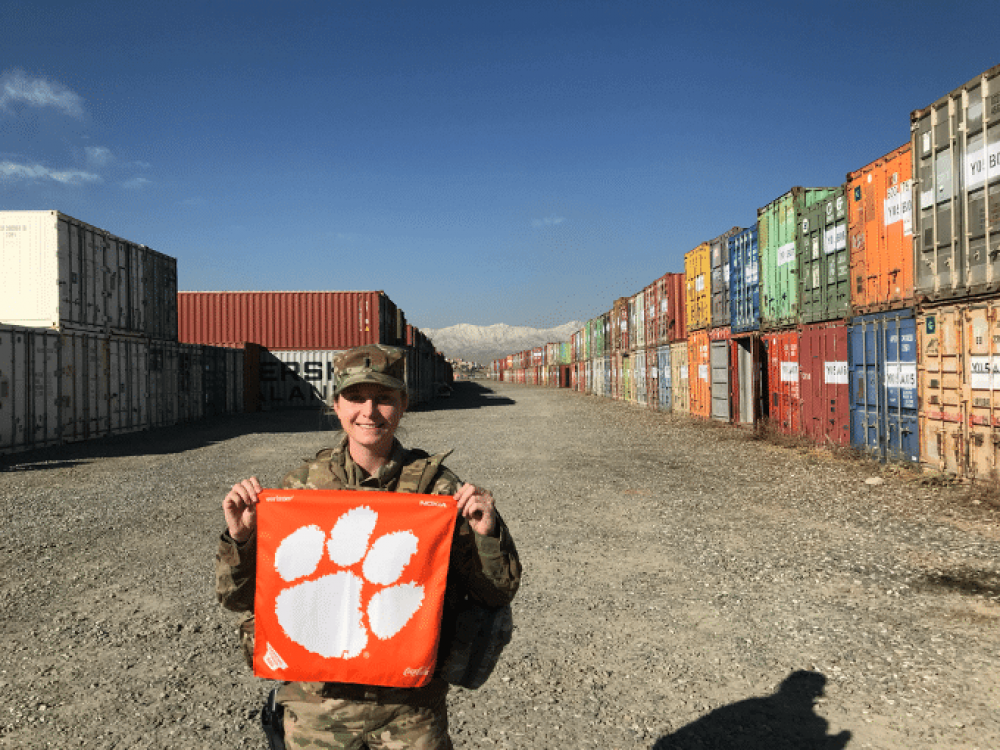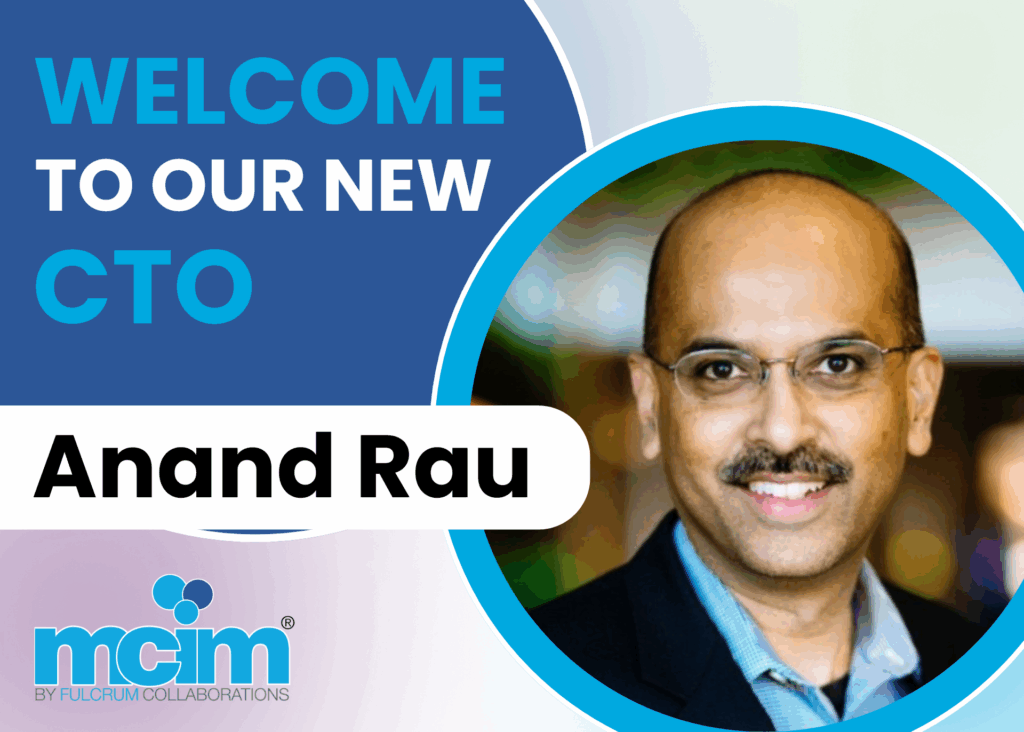Updated on November 6th, 2024
Originally posted on Salute Mission Critical
By Lee Kirby, Salute Co-Founder, and retired Army colonel interviewed Jenn Nachman, US Air Force Veteran.
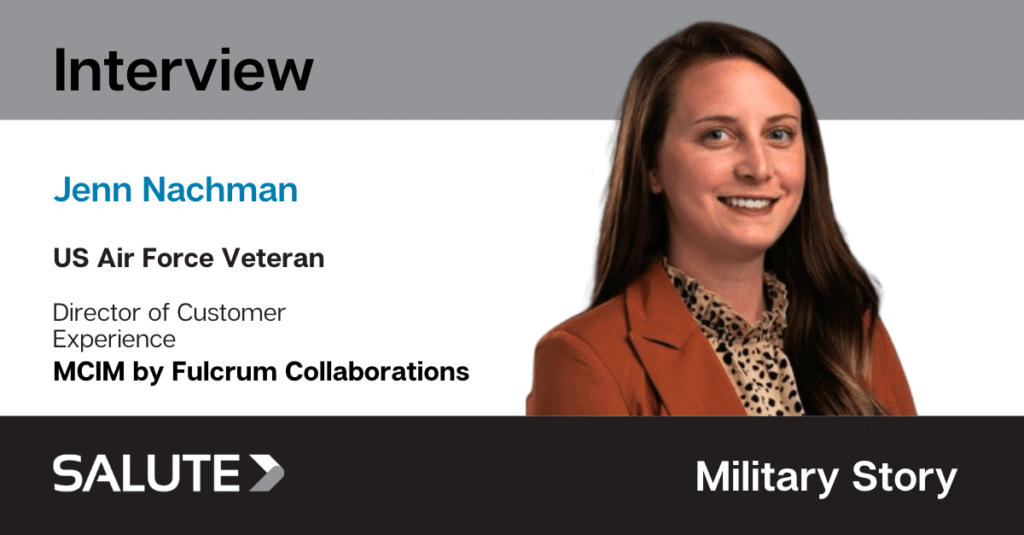
What is the Salute Military Community?
The Salute Military Community is a unique cohort of veterans and the military community who serve as examples of the value their experiences bring to our industry. The Military Community supports Salute’s mission and strives to achieve our shared vision of providing veterans and military spouses career opportunities in the data center industry. We are proud of the military community for giving back to other members seeking to start careers in this industry.
Before we dig in, our readers would love to get to know you a bit. Can you tell us a bit about your childhood “backstory”?
I grew up in Eldersburg, Maryland with my wonderful parents Tricia and Martin and my three sisters, Emily, Hailey and Erin. I grew up swimming and being involved in community volunteer programs with a lot of structure and things that kept me busy. As I started to look for colleges, I came across Clemson University and their ROTC program that I applied for and was accepted into. Clemson provided wonderful opportunities that not only were the start of my military career but also allowed me to play club water polo, join Delta Zeta sorority and make lifelong friendships. I received an accounting degree from Clemson in 2014 along with a commission into the Air Force that led me to my first assignment to Ramstein Germany.
And what are you doing today?
Today, I live near Richmond, Virginia with my husband Greg and our two dogs, Rosey and Sage. We love to travel the world while packing our trips with outdoor activities like hiking, fishing, white water rafting, our most recent venture being to New Zealand! I am the Director of Customer Experience at Fulcrum Collaborations (MCIM). I oversee our customer experience strategy, software implementations and our day-to-day technical support and advocacy for our customers. I am also a Logistics Readiness Officer serving part-time as a Military Reservist.
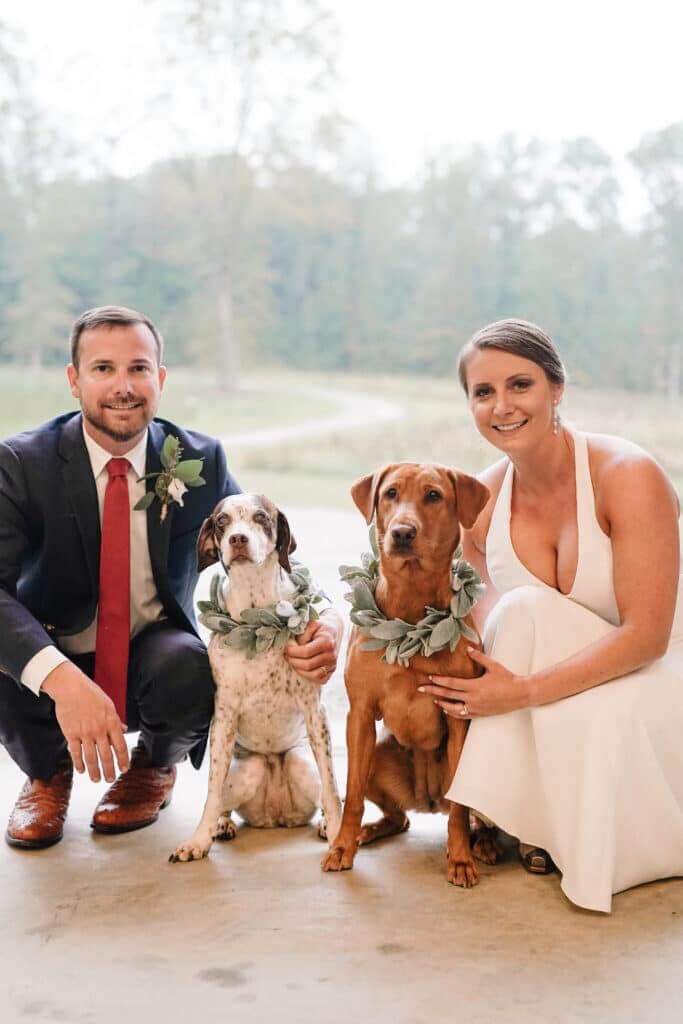
Can you tell us a bit about your military background?
I was commissioned from Clemson University in 2014 as a 2nd Lieutenant in the United States Air Force, and my first assignment was as a Logistics Readiness Officer in my dream location of Ramstein, Germany. Here, I spent four years doing a wide array of jobs including aircraft parts supply, vehicle operations management, deployment readiness/oversight, and cargo/passenger movements worldwide. I obtained a wealth of knowledge from my experience at Ramstein as well as from the colleagues and mentors I had along the way throughout this first assignment. Later, I was deployed to Kabul, Afghanistan where I spent seven months working alongside the Afghan Army to advise them on convoy operations, supply chain logistics and warehouse management. From here I was selected to be a part of the Logistics Career Broadening Program within the Air Force where I was able to work with partner manufacturing companies to procure and contract aircraft parts needed worldwide by warfighters. I was selected to learn from incredible government civilian partners while in a student status learning the ins and outs of global supply chain and best practices. Around this time COVID started, and I decided after six years of active-duty service I wanted to pursue other options full-time, but I still wanted to be able to serve in the military. I opted to move from active duty to the reserve component where I have served for the last four years in a few roles. This included continued time working within the Joint Reserve Force continuing the supply chain journey and then transitioning to working within a large aerial port overseeing ramp, cargo, and special handling of heavy aircraft movements.
Can you share the most interesting story that you experienced during your military career? What “take away” did you learn from that story?
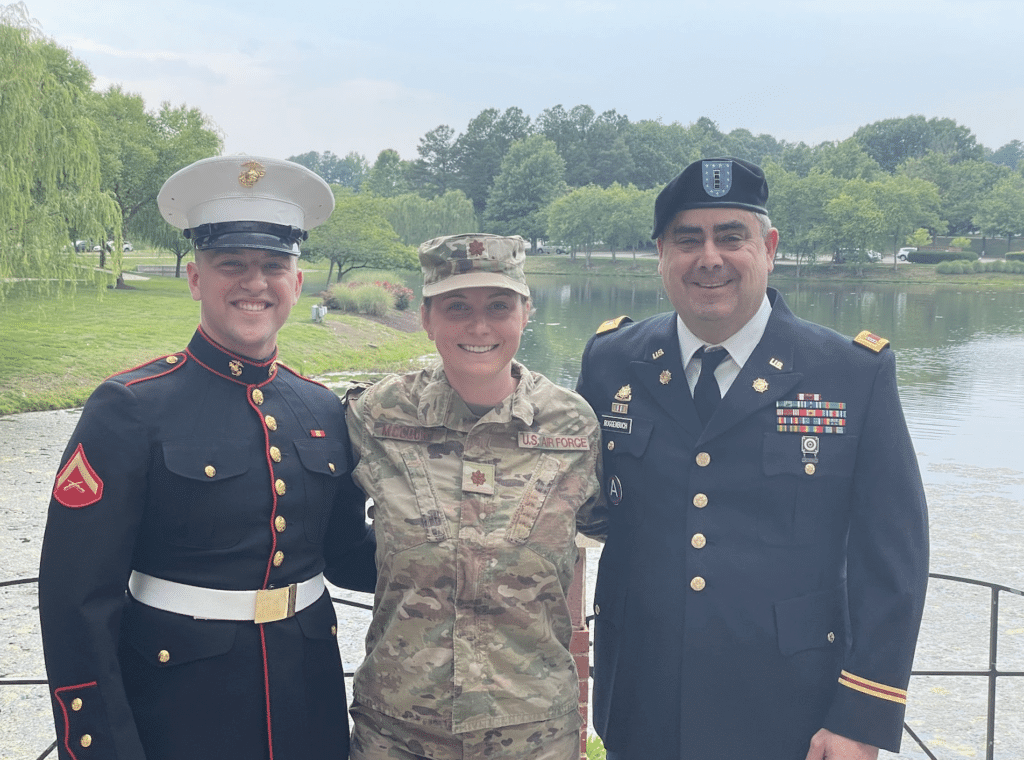
In Afghanistan, we were running convoys and advising the Afghan Army. There is so much more you must do when you are leading your team and leading through influence to achieve a mutual outcome. There is always a bigger piece of the puzzle that you fit within, and I learned quickly where I fit strategically and how to execute tactically; this was the key to mission success. I have taken that lesson and always ask myself; ‘how can I drive bigger and better value from the position I am in with my direct and indirect influence?’, because you always have both factors, and they enable you to accomplish so much more once you realize it. The opposite is also true and for those who do not realize it, the complex operating environment can become an unsolvable puzzle, and I think the military provides the opportunity to quickly learn how to deal with complex, ambiguous and rapidly changing situations. Finally, the military taught me to take care of my team, and their motivation will drive positive results regardless of the circumstances. Motivation comes from a leader that establishes a climate that is built on trust, accountability and clarity with everyone knowing their role and the mission. I served because of my love of my country, but I did not realize how much I would grow and learn as a leader consequently.
Do you think your experience in the military helped prepare you for business or leadership? Can you explain?
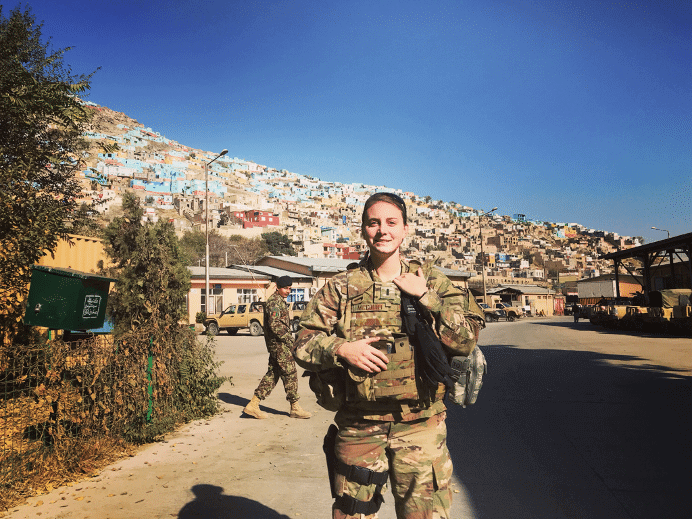
There are so many things that you are responsible for at a young age within the military, and you must take responsibility when things fail. You learn that sometimes things are going to fail. You also learn that it’s okay to fail, but it’s not okay to fail the same way again; that has been so helpful to me in my civilian life. In the military, failure is looked upon as a chance to learn and you share that information so others can benefit from what you learned. That kind of environment helps an organization learn and adapt quickly and even large companies who adopt this type of mindset can do the same. The military takes young people and gives them a mission-focused orientation with leadership responsibility and puts them under stress early and often, sometimes in life-or-death situations. That is what differentiates a veteran from their civilian counterparts and why you see so many veterans in leadership roles in companies.
None of us are able to achieve success without some help along the way. Is there a particular person who you are grateful towards who helped get you to where you are? Can you share a story?
I have worked with so many awesome people and could spend a lot of time recognizing everyone starting with my parents and going all the way to mentors today. However, there is one person who built my foundation as a young lieutenant, and I think had a great influence on me becoming the leader I am today. As a young second lieutenant, I was so fortunate to have Chief Master Sergeant Donna Schultz take me under her wing and teach me everything about logistical operations, military heritage and life. The intricacies and nuances of dealing with both complex operations and leading young people are mind blowing to a new officer and she taught me both in such a professional and nurturing manner. She did it sometimes without me even knowing it. I think of her often and when faced with a tough situation, draw on what she taught me, and find that the foundation of wisdom she imparted has served me well. I sincerely hope that everyone is blessed with a similar mentor in their life.
You are a part of Salute Veterans Community that shares a common passion of helping veterans get into this industry. This community is “Veterans helping veterans”. Why is this important to you?
There is only a small percentage of veterans in the workforce. We change because of our service and go into the military just when we are starting to mature as adults, so when we reenter civilian life, it takes adjusting. We sometimes are a mystery to our civilian counterparts at times, and it could be because of Hollywood portrayals or social media hype. Because of this somewhat strange cultural gap, it is important to have a network of people that you can talk with to help learn and adjust. It is also valuable to help as our careers progress to have a network to support each other. So, like any other group of people with shared experiences, I think it is valuable to have veterans networking and supporting each other because we understand each other and there is a bond of having served, so we start the conversation not as strangers but as old friends.
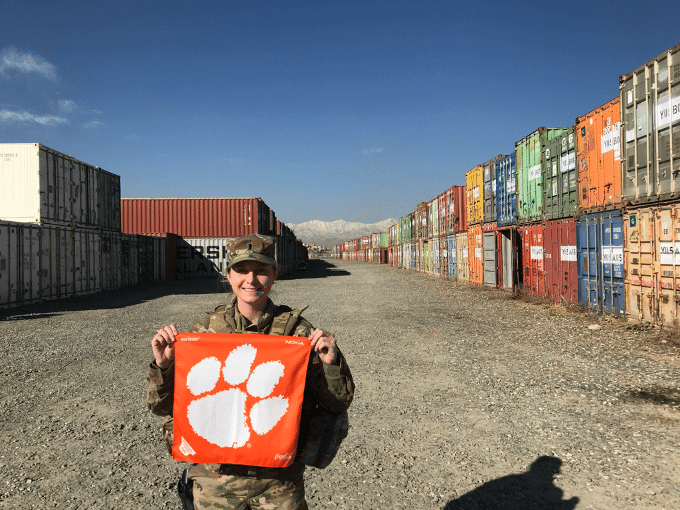
If you could inspire a movement that would bring the most amount of good to the most amount of people, what would that be? You never know what your idea can trigger.
Inclusion is used often and seldom understood. I would like to be able to wave a magic wand and have a world that is truly inclusive and does not have barriers to any underrepresented groups. I am not narrowing this to gender or race but more broadly to any group of individuals. I work with Special Olympics and other groups that have societal barriers to overcome just to participate in day-to-day activities. I know we have a long way to go on all fronts, but I also want to have all of society be more open to the notion that everyone deserves to have a seat at the table regardless of differences and we should strive to be inclusive of all.
How can our readers follow you online?
I have a LinkedIn page!
